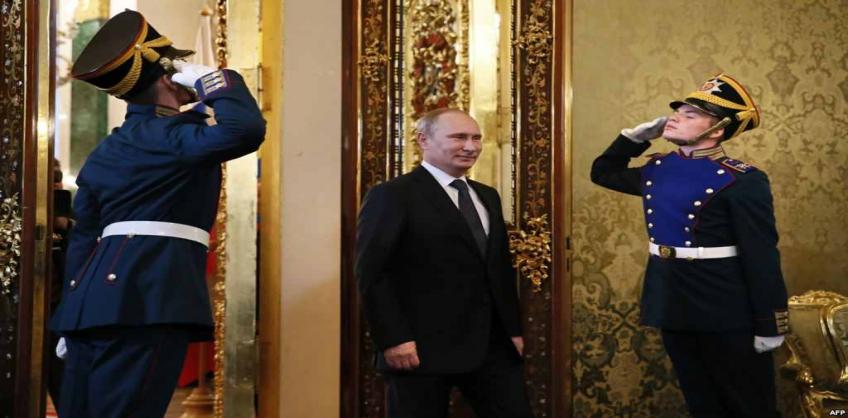February 2014 content of the paper pave Russian strategy in the Arab region path-Arab relations Russian Russian attitude towards the Arab revolutions: the case of Tunisia, Egypt and Libya Russia and the Syrian crisis Mhaddadt Russian foreign policy opportunities in front of Russia obstacles facing the return line the future of Russian-Arab relations in the light of the transformations of the current international pave the Middle East region since the outbreak of the revolutions of the Arab Spring many variables not at the level of the countries themselves, but also at the level of the key players in the region, revolutions, which caught everyone by surprise resulted in many variants, and increased severity of these variables after military coup in Egypt. Live in the Middle East stage articulated in its history, and witnessing political changes rapidly, and new alliances may reshape the political map of the region, and the restructuring of alliances, and the replacement of the Allied veterans others renewed, according to the considerations emerges the great powers, although not clearly defined yet. Comes on top of these changes convergence Iranian-American, and change the tone of most European countries towards Iran after the arrival of President Hassan Rohani to the presidency, and we are witnessing at the moment convergence, announcing an unprecedented between Iran and the United States, which Maevsr that the American administration in the process of re-evaluating its policy in the Middle East and that the region is no longer the area of greatest interest to the American administration in exchange for the increased interest in the Far East. It seems that these changes flowing one way or another for the benefit of Russia, which is trying to return to the region again, it has benefited Russia much of the hostility between Iran and the international community and the United States specifically, and she was playing the paper Iranian frequently on the subject of political balances of international, regional, and thus Moscow is not going to want to in this paper, such a loss, and will not overdo it with ease. The question here is, what are the alternatives owned by Russia that the United States has succeeded in part, to the inclusion of Iran? Everyone knows that the relationship of the United States with the Gulf countries, especially Saudi Arabia is not at its best at the moment, and emerged clear divergence in views between Washington and Riyadh about what is happening in Syria and Egypt, and the peace process in the Middle East and the convergence of the Iranian-American. Positive case of dissatisfaction with Saudi Arabia's policies toward Washington in the Kingdom apology for accepting the temporary seat on the Security Council, and before that the abolition of Saudi Arabia in her last meeting of the General Assembly of the United Nations in New York. This chill in relations between Saudi Arabia and the United States, and the convergence between the latter and Iran on one side, and the state of dissatisfaction with Russia because of this convergence, it may lead to an alliance Saudi- Rossi in the case of Riyadh succeeded in convincing Moscow to change its position on the ongoing events in Syria, and the abandonment of support for Bashar Assad.

